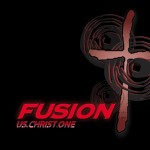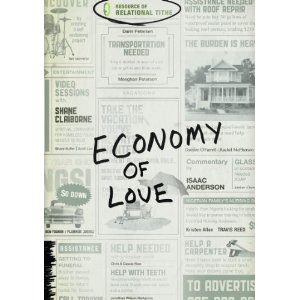A memory I hope my mind will never forget was a reoccurring scene growing up in my home where I would walk into the kitchen and see my mom read her Bible with a cup of tea next to her. I would go downstairs to watch television and on my way would peak in my dad’s home office study and see him reading his Bible. I grew up in a home where we did family devotions and where Scripture and prayer were emphasized. I didn’t like it, I mean really, who wants to hang out with their parents and if they must, do we have to read the Bible of all things? Still, I remember my parents’ devotion to have some type of impact on me.
So when I write this post with this title, it is not against the idea of daily devotions. If you reading this for the first time, my goal is to get you to read some of NT Wright’s books and this particular set of posts is on his book The Last Word and it’s about Scripture. One thing Wright continues to do is take a fairly good thing and point out that it’s not enough. So it’s with enthusiasm that I say Amen and Amen when he writes that the Bible is more than just a “devotional manual” (p.32). As a pastor who hears constantly how hard it is to find time to read the Bible (and I know this personally as well), I know the last thing I want to do is allow any further possibility of guilt and risk the possibility of the Bible becoming even more intimidating for people. So critiquing the Bible as not just a mere “devotional manual” is a risky thing.
That said, the flip side is for those who do read their Bibles consistently but only treat it as a devotional manual miss out on so much beauty and power contained in the Scriptures. The problem that I found is when I use the Bible merely for personal devotions, I “hunt” only for what applies specifically to me and what I would consider to be useful that day. Now that is not necessarily a bad thing but I liken it to signing up for an expensive gym membership and only using it for the treadmill – there’s a lot more in there to take advantage of.
And this is where I find Wright as a scholar and as a pastor to be so helpful because he is among those that writes with the normal church worshippers in mind. Wright offers these strategies to gain more than just a devotional reading from Scripture.
First he says that we must employ a “totally contextual” reading of it (p. 128).
He writes:
All Scripture is “cultural conditioned.” It is naïve to pretend that some parts are not, and can therefore be treated as in some sense “primary” or “univeral”, while other parts are, and can therefore safely be set aside. The doctrine of Jesus’ divinity is culturally conditioned … the doctrine of justification by faith is culturally conditioned: only within a world already accustomed to notions fo God’s justice, of the Jewish law, and of the promise to Abraham could such a thing be conceived. We must read the Bible with as full and clear an understanding of these contexts as we can. To do so is an enormous, though exhilarating task.
He goes on to say that to understand the Bible’s context, we must also understand and appreciate our own. We read into the text our own biases and presuppositions and while we can “check” them, we cannot entirely divorce ourselves from our personal contextual lenses … and so simply, we should be aware of that because it alters our reading and applying of Scripture.
Second he suggests that there be a Liturgically grounded reading of Scripture. Similar to the public readings of the Old Testament, we should emphasize the reading of Scripture in our corporate spaces of worship. In a world of an hour long worship service that is scared to death from boring their congregations, this becomes quite the task. For some, it seems the reading of Scripture in between worship songs is just filler but for others, they are moments of power and inspiration. After all, why is that we sing and who we are truly singing for?
Third, there must be a privately studied reading of Scripture. I can hear some of you thinking, “Hey, this sounds like daily devotions!” Umm, yeah, but it’s a bit more too. Wright states that it is vital for Christians to read, encounter and study the scripture for themselves. And although Western individualism tends to highlight individual reading as the primary mode, he suggests that churches find ways to hear and share the worshippers’ private readings whether it be in small groups or other means.
Fourth Wright states that a reading of Scripture refreshed by appropriate scholarship is needed. He says, biblical scholarship is a gift to the church and we should find ways to incorporate the academy into our local churches (and vice versa – the local church into the academy). So what does this mean? Read Don Miller and Richard Hays. Do a Beth Moore study and have a Bible dictionary hand. Just as we profit from the work of other brilliant minds in our medicine and technology, we as believers would be wise to include biblical scholarship too.
Lastly Wright advocates that the Scriptures be taught by the church’s accredited leaders. How convenient for a recent seminary graduate to include this huh? Not only is he stating that churches need to guard the teaching but also reminding everyone that church leaders need to do more than organize and manage the affairs of the church but to put into practice what it means to live by the “authority of Scripture”. I was moved and convicted of this last point and while I know applying this relies on a congregation to allow its leaders to pursue this, it also means that church leaders must be on the ball with this responsibility as well. So may it be so with the help of the Holy Spirit.
Again, if you have a love for Scripture and mission, I hope you consider reading The Last Word – it’s an excellent book and provides a brilliant perspective on the Word of God.

 As always, Claiborne is excellent but those who have been following him for a while may be disappointed that they are not going to hear anything “new”. I know he is more a practitioner and not a innovator but I’m just speaking as a reviewer who likes Claiborne but wasn’t particularly moved by the work. Know that it pains me to write that. If I can unpackage that a bit, I mean I’d like to understand more of perhaps the meditations and actions after The Irresistible Revolution as opposed to new ways and methods to think about the poor. I think we have become bored by the impovered, it’s probably due to the lack of ministering to them. However, more on the relational tithe would have been cool too. Maybe for future projects on a deeper look at the practices, “programs”, reflections of the Simple Way/Potter Street and how they can be adapted in different settings, rural, suburban, etc. As the risk of sounding overly critical, this would have been more helpful shortly after the release of Irresistible Revolution
As always, Claiborne is excellent but those who have been following him for a while may be disappointed that they are not going to hear anything “new”. I know he is more a practitioner and not a innovator but I’m just speaking as a reviewer who likes Claiborne but wasn’t particularly moved by the work. Know that it pains me to write that. If I can unpackage that a bit, I mean I’d like to understand more of perhaps the meditations and actions after The Irresistible Revolution as opposed to new ways and methods to think about the poor. I think we have become bored by the impovered, it’s probably due to the lack of ministering to them. However, more on the relational tithe would have been cool too. Maybe for future projects on a deeper look at the practices, “programs”, reflections of the Simple Way/Potter Street and how they can be adapted in different settings, rural, suburban, etc. As the risk of sounding overly critical, this would have been more helpful shortly after the release of Irresistible Revolution Zach has a great voice, excellent lyrics, a joy to watch live – He puts on a great show. Also worth mentioning are his fans that were at the Bowery. Obviously, fans show up to shows, that’s not new. But what I thought was interesting is that Zach leads worship at a church plant in Brooklyn but has managed to keep that “leading worship” world separate from the “performing music and artistry” world at the Bowery … but still include the same people. It was cool and as one who has never seen him in a worship-leading context, I found myself thinking about that.
Zach has a great voice, excellent lyrics, a joy to watch live – He puts on a great show. Also worth mentioning are his fans that were at the Bowery. Obviously, fans show up to shows, that’s not new. But what I thought was interesting is that Zach leads worship at a church plant in Brooklyn but has managed to keep that “leading worship” world separate from the “performing music and artistry” world at the Bowery … but still include the same people. It was cool and as one who has never seen him in a worship-leading context, I found myself thinking about that.




Recent Comments